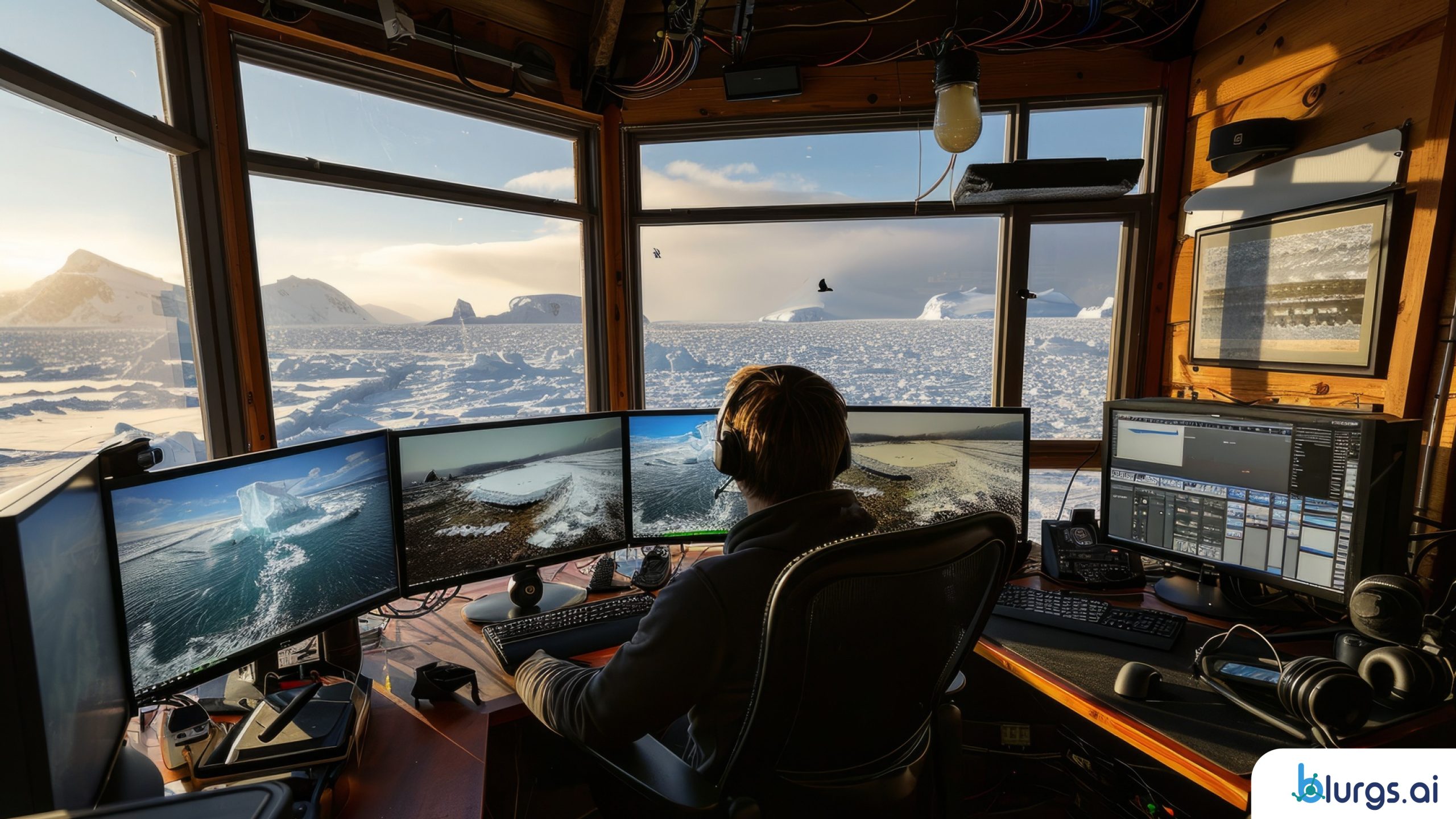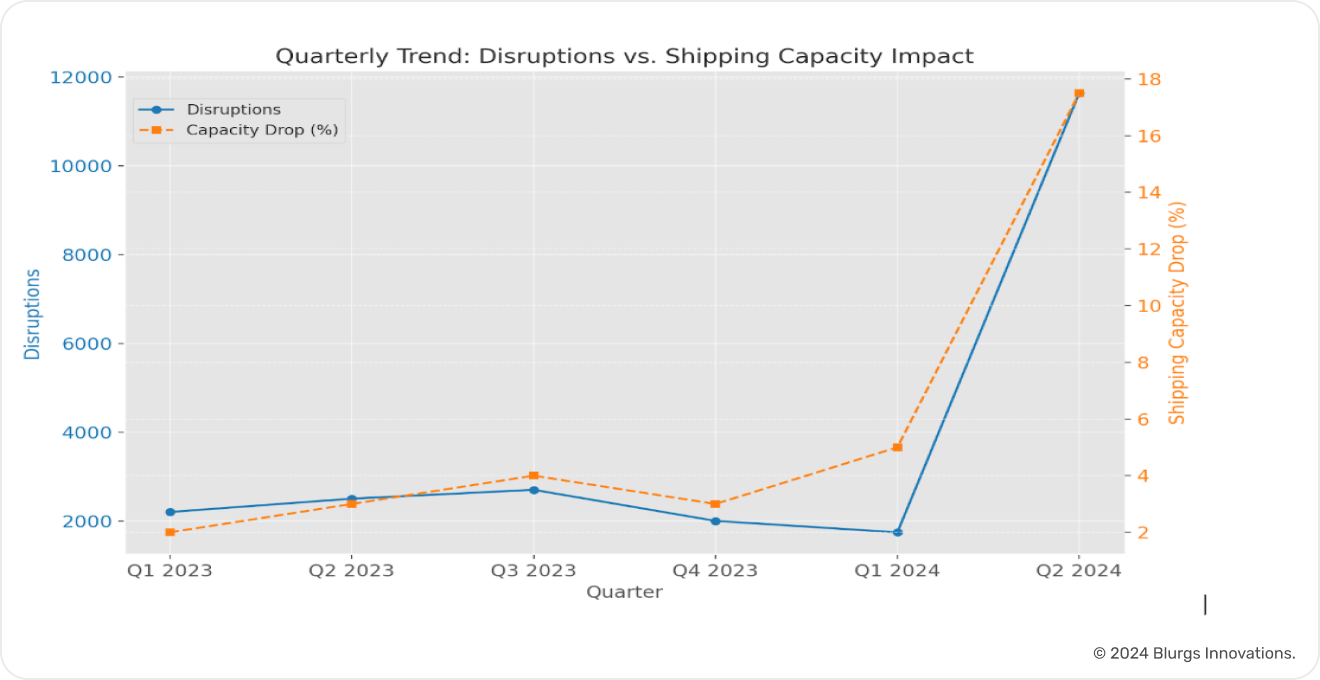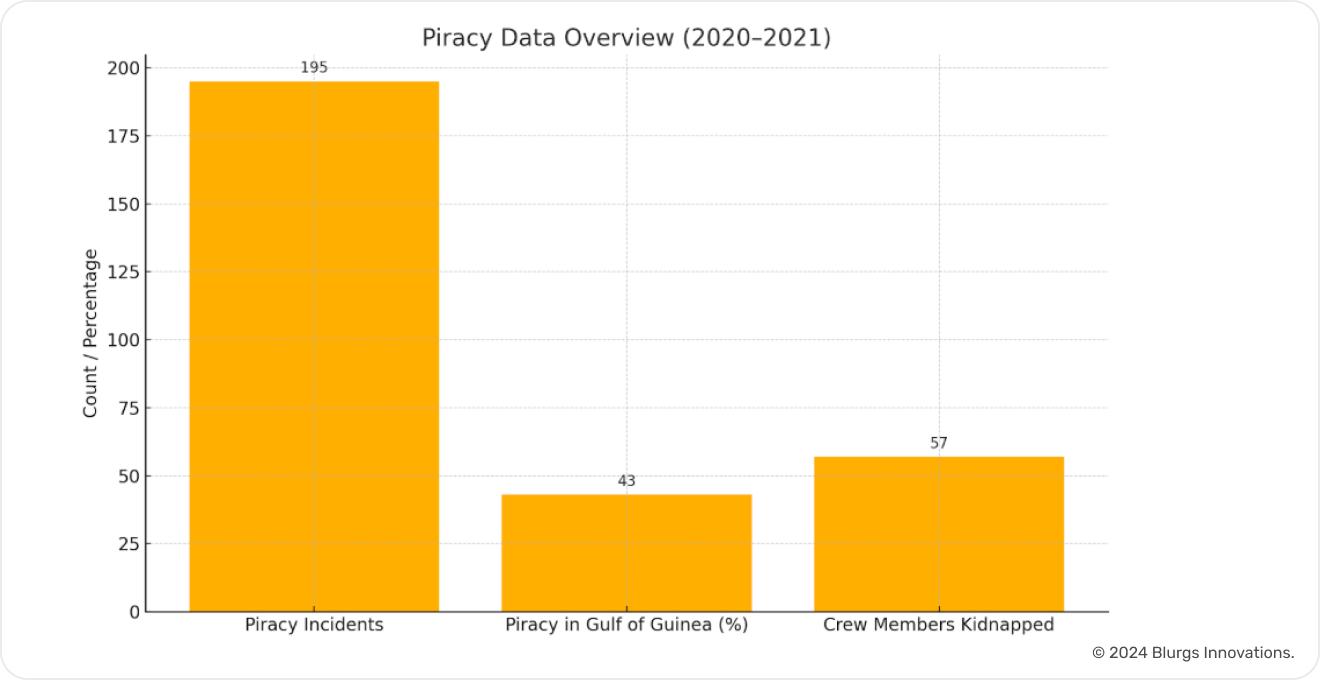What would you do if you lost $9.6 billion every day for 6 days?
At the very least you will lose your sleep.
But this was way more serious than that. In a world where billions exchange hands in the stock market every minute, the Ever Given fiasco in the Suez Canal certainly stemmed the tides of international trade (literally).
It’s the same as a major vein in your body getting blocked, unable to carry blood to the heart. And you know what happens when the heart stops beating?
That’s what happened when one of the most important global trade routes was blocked for 6 days. The beating heart of international trade, maritime trade, was in the emergency room.
Total losses eventually crossed $54 billion. But the repercussions highlighted something more pivotal — the vulnerabilities in maritime logistics and the urgent need for proper route management.
Because maritime logistics isn’t just fighting pirates and smuggling. It’s also about navigating through unexpected adversities to keep marine operations running smoothly.
It’s the marine equivalent of CPR.
The High Stakes of Maritime Logistics
Maritime logistics is the backbone of global trade, facilitating the movement of goods worth trillions of dollars. A single disruption can impact supply chains, inflating costs and shaking market stability.
Traditional Maritime Threats
Traditional risks like piracy, smuggling, and hijacking continue to challenge the industry. Pirates don’t just steal cargo, they hijack vessels, hold crews for ransom, and disrupt entire supply chains.
The financial burden of these activities is immense, driving up insurance premiums and forcing ships to reroute, which adds both time and cost to operations.
Smuggling is another persistent threat. Criminals exploit maritime routes to transport illegal goods, from narcotics to weapons.
The cumulative effect of these threats includes increased operational costs, higher insurance premiums, and reputational damage.
How can AI help in Maritime Safety and Security for Logistics Management?
Artificial Intelligence (AI) is transforming the maritime industry by providing tools that enhance risk management, cut costs, and boost operational efficiency. By leveraging real-time data, AI can predict and mitigate threats, ensuring smoother and safer operations.
- Improved Risk Management: AI systems can analyze vast datasets from multiple sources, detecting patterns and anomalies that indicate potential threats. This enables proactive risk management, allowing companies to address issues before they escalate.
- Cost Savings: By optimizing routes and improving fuel efficiency, AI reduces operational costs. Predictive maintenance powered by AI minimizes downtime and extends the lifespan of equipment, leading to significant savings.
- Operational Efficiency: AI streamlines processes, from cargo handling to navigation, enhancing overall efficiency. Real-time decision-making capabilities ensure quick responses to changing conditions, further improving operational performance.
- Real-Time Threat Detection: AI systems continuously monitor data from various sensors and sources, identifying potential threats as they arise. For example, AI can detect suspicious AIS (Automatic Identification System) activity that might indicate piracy or smuggling attempts.
- Predictive Analytics: AI uses historical and real-time data to predict potential threats. By recognizing patterns, AI can foresee issues such as cyber-attacks or environmental hazards, allowing companies to take preventive measures.
- Operational Resilience: With AI, maritime operations become more resilient. The ability to predict and respond to threats quickly reduces downtime and maintains continuity. This resilience translates directly into a higher return on investment (ROI) by minimizing disruptions and associated costs.
How Trident’s AI Solutions Enhance Maritime Security for Logistics Management
Trident is our advanced maritime surveillance and management system designed to address the evolving threats in maritime logistics. Leveraging cutting-edge AI technologies, Trident offers a comprehensive solution that enhances security, operational efficiency, and compliance.
Its scalability ensures that it can grow with your company’s needs, providing long-term value and adaptability to changing maritime challenges.
Key Features
- Real-Time Data Analytics
- Trident processes data from AIS, RADAR, satellite imagery, and onboard cameras in real-time, providing immediate insights and situational awareness.
- Enables prompt threat detection and decision-making, reducing the risk of incidents and enhancing operational efficiency.
- Predictive Maintenance
- AI-driven predictive maintenance monitors the condition of maritime assets, predicting failures before they occur. This extends the lifespan of equipment and improves asset utilization.
- Threat Detection and Mitigation
- Trident’s AI capabilities identify potential threats such as piracy, smuggling, and cyber-attacks through pattern recognition and anomaly detection.
- Route Optimization
- Analyzes real-time data on weather and sea conditions to suggest the most efficient and safe routes.
- Reduces fuel consumption and operational costs, ensuring timely deliveries and improving overall supply chain efficiency.
- Compliance Management
- Ensures adherence to international maritime regulations and standards through continuous monitoring and reporting.
- Reduces the risk of regulatory fines and enhances the company’s reputation for compliance and safety.
Maritime Security Services: Traditional Methods vs Trident
When comparing Trident’s AI solutions to traditional methods, the advantages are clear:
| Traditional Methods | What Trident Does Better? |
| Rely on reactive measures, addressing threats after they occur. | Proactive, identifying and mitigating risks before they escalate, thereby preventing disruptions. |
| Lack real-time data processing capabilities, leading to slower responses and less efficient operations. | Real-time analytics ensure prompt decision-making and optimal operational performance. |
| Involve high manual labor and operational costs. | Automation, predictive maintenance, and optimized routing, leading to significant cost savings. |
| Low ROI with more downtime, maintenance costs, low security, and failures in regulatory compliance. | Higher ROI with reduced downtime, lower maintenance costs, enhanced security, and improved regulatory compliance. |
Strategic Importance of AI for Key Stakeholders
For Technology and Digital Transformation Leaders —
- Automates routine tasks, liberating resources and allowing teams to focus on strategic initiatives. For example, AI optimizes routing and scheduling, resulting in significant fuel savings and reduced operational costs.
- AI excels by providing advanced data processing and analytics capabilities. It can sift through massive amounts of data, identify patterns, and extract actionable insights.
For Operations and Supply Chain Leaders —
- Helps optimize supply chain operations, reducing costs and increasing production efficiency. AI-driven systems analyze real-time data to forecast demand, manage inventory, and optimize logistics.
- By continuously monitoring equipment and predicting failures before they occur, AI ensures that maintenance is performed proactively.
For Security and Compliance Leaders —
- Providing robust protection against physical intrusions and cyber-attacks.
- Maintaining compliance with international regulations and standards is simplified with AI. It automates the monitoring and reporting processes, ensuring that all operations meet regulatory requirements.
If you want to know more about keeping your operations safe, read our ebook on Safeguarding Your Supply Chain: How AI Mitigates Maritime Threats. This is our comprehensive guide to help you make the right decisions and understand the ever-changing maritime landscape.
The Potential of AI in Maritime Security
Consider integrating AI solutions like Trident today. The strategic benefits of integrating AI solutions like Trident are clear.
Enhanced threat detection, improved operational efficiency, and better compliance management are just the beginning. Embrace the future of maritime logistics and ensure your company is prepared for tomorrow’s challenges.


